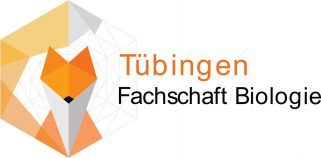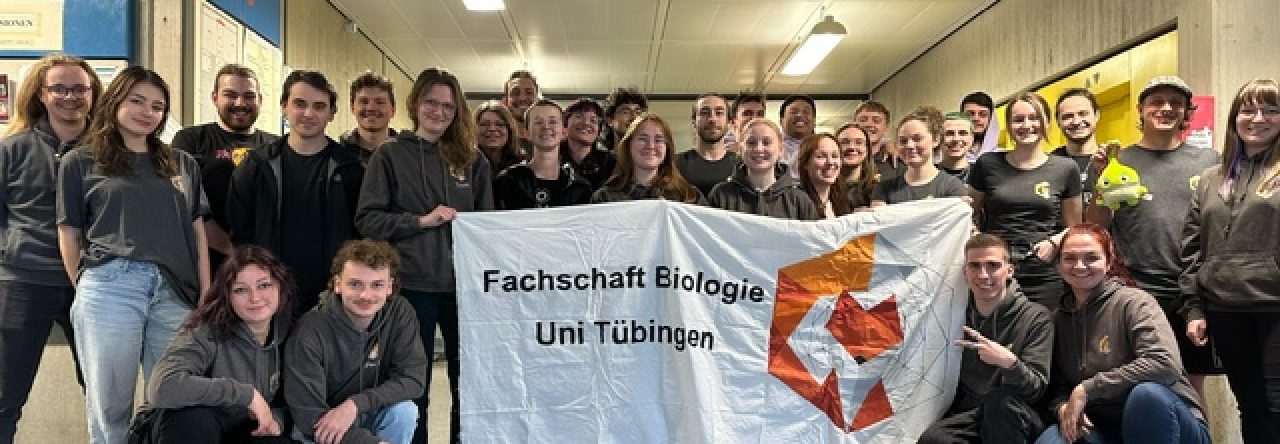Welcome at the department of biology at the University of Tübingen!
You can find official information about the Biology Program on the homepage of the department here.
If you have any questions, just send us an e-mail! We would be happy to help you with your study in Tübingen.
Past exams
You can find older exams for different courses under „Altklausuren„. You can use them for studying for your upcoming exam. You will find the username and password in our „Ersti-Heft“ on page 6, which you can find under „Studienstart“ or in front of our office (E-building, 3rd floor).
We can only maintain the exams with your help! Please ask your professor after an exam, whether you can get a blank copy for the Fachschaft or talk to your study colleagues and create a memory log. Thank you!
Evolution and Ecology
The M.Sc. program, Evolution and Ecology, provides instruction on the origin, the evolution and the conservation of complex biological systems in time (current – historical) and space (local – global) and integrates processes from the genetic level through the organism to the ecological communities. The curriculum covers synthetic fundamental principles as well as applied, environmentally relevant aspects. The focus of the course is on the detailed scientific investigation of the evolution of organisms and the importance of their interactions in their environment.
Microbiology
The M.Sc. program, Microbiology, provides in-depth knowledge of microbiology, ranging from the microbiology and physiology of microorganisms to infection biology and biotechnology. Students are instructed in the basic fundamental principles of microbiology and can choose to focus on different specialized areas within this field. The major objective of this course is to promote scientific inquiry and to encourage research and critical reflection and independence and self-reliance in the students.
Molecular Cell Biology & Immunology
The M.Sc. program, Molecular Cell Biology and Immunology (MCBI), provides instruction on the complex regulation of cellular and immunological processes in humans and animals. The focus of this area of specialization is on the in-depth scientific investigation of the molecular mechanisms that regulate the function and behavior of cells and, if defective, lead to disease. The experimental subjects will be model organisms, such as Drosophila or Caenorhabditis and cell cultures from single animal or human cells. The experimental results will provide insight into, e.g., cell functions in cell clusters, cell differentiation and organ development. The immunological processes will be examined with particular reference to disease-related malfunctions, as they occur in cases of immunodeficiency or in the context of tumor immunology.
Neurobiology
The M.Sc. program, Neurobiology offers students in-depth instruction in the neurosciences, the opportunity to acquire wide-ranging skills in current methods of neuroscientific research and the training to address and solve scientific problems in this area independently. The focus of the program is on the integrative neurosciences of higher vertebrates.
Cellular and Molecular Biology of Plants
The M.Sc. program, Cellular and Molecular Biology of Plants, provides students with an understanding of the manifold life processes in plants at biochemical, molecular, cellular and physiological levels. The curriculum covers the theoretical explanatory approaches, principles and methods in the life sciences as well as the distinctive features of the molecular life processes in plants.
The focus of the course is on the in-depth scientific investigation of the molecular mechanisms that control the processes of plant development and adaption to biotic and abiotic environments and enable the interplay of the developmental and adaptive processes.

